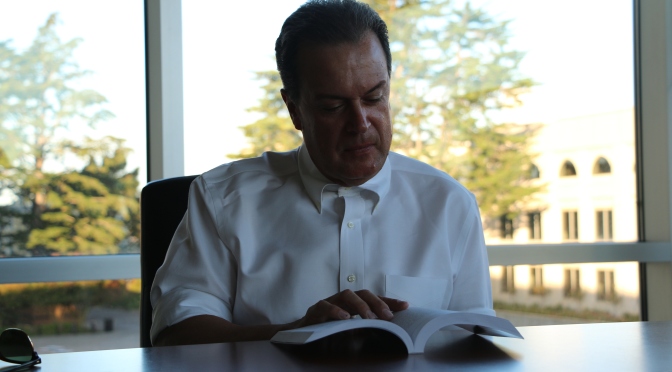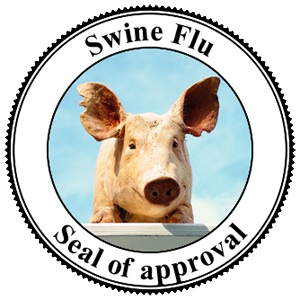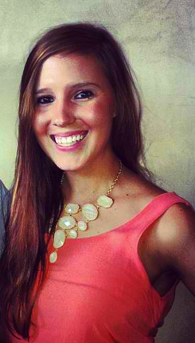Community Organizers Discuss Activism Principles
If you don’t have haters, you’re doing something wrong.
This sentiment, speaking to the idea that there must be opposition to produce change, was a primary focus of Javier Reyes, Bay Area activist and hip hop producer, who spoke at last Thursday’s panel, “Activism: Then and Now.”
Reyes was one of three panelists that have been agents of change for numerous causes, joined by Shanell Williams, Student Trustee at City College of San Francisco (CCSF) and Phil Hutchings, who was involved in the Freedom movement of the 1960s and the Student Nonviolent Coordinating Committee (SNCC) in Newark, New Jersey.
The evening’s speakers focused on topics including the accreditation conflicts at CCSF, the Occupy Movement, the “selfie movement,” and what we can learn from the Civil Rights Movement.
After the panelists explained their positions and gave insight into the workings of social movements, the evening progressed into an open forum where the audience asked questions. The event was moderated and organized by senior Victor Valle, who asked the speakers how they thought activism has shifted since the rise of technology.
“We can’t have success without successors, which essentially means we have to pass on these lessons and stories to the next generation, which now is us.”
Although all three speakers recognized some pros of rapidly developing technology, they agreed that there is less of a human connection now. “We need to get back to sitting around the table and having dinner together, that’s where the magic happens,” said Williams. Hutchings agreed, saying that we need to figure out the most effective way of using technology while “increas[ing] the human part,” he said.
Reyes recalls when the flipped camera feature on iPhones first came out, allowing “selfies.” “When did it become about the self and not about the we,” he wondered. He thinks technology should be used not to promote self-righteousness, but righteousness. Until then, “no one is moving together,” he said.
Williams commended USF for being an institution dedicated to getting out in the community, reminding students to use the heart. Reyes added, “don’t be academic without having the compassion of spirit. You think you’ve made it after getting a degree, you haven’t made a damn thing until people are free.”
The speakers left a lasting impression on Valle. “We can’t have success without successors, which essentially means we have to pass on these lessons and stories to the next generation, which now is us. I’ll definitely remember that one forever,” he said.
Another topic brought up throughout the evening was the Accrediting Commission for Junior and City Colleges taking away CCSF’s accreditation, which refers to “the quality of education or training provided by the institutions,” according to the U.S. Department of Education, but Williams said they were focusing more on financing governance than quality education. Williams explained that absence of accreditation basically means the school is one step away from shutting down completely. She spoke about the recent efforts of CCSF to appeal the decision of the Accrediting Commission for Junior and City Colleges.
She wants to preserve affordability because “we want to keep the community in community college” rather than conform to the agenda of their opposers -“a neoliberal agenda that says only a certain few can have the opportunity to education.”
Explaining how students are best positioned in any fight for change, as they are on the forefront of the job market, Williams gave students insight into how the Occupy Movement could have been better so as to create a framework for future causes. “There has to be a clear leadership and organization,” she said, adding that spirituality is essential in spurring change because “it is a part of the human condition. It’s all about changing people’s hearts and minds.”
These factors are part of what made the Civil Rights Movement so successful and could have made the Occupy Movement stronger, Williams explained.
Another important factor for successful social change, according to Williams, is for the marginalized communities to be at the forefront of the movement. This is one thing Occupy was lacking, she explained. The Civil Rights Movement had solidarity among marginalized communities, as well as a commitment to nonviolence. Whereas with Occupy, “There were individuals who were aggressive with the police, they thought radical mass action was all there is,” she said, adding, “that’s what killed the movement.”
Hutchings also outlined lessons for social change, all of which he learned through his involvement in events of social rebellion in the 60s.
“There are more people in the 21st century motivating for change than there were in the 60s, but the focus was stronger,” said Hutchings, explaining how the movements then were more specific, focusing on causes such as anti-draft, women’s liberation, anti-Vietnam, and civil rights, whereas Occupy was much too broad.
Hutchings also noticed how more recently, successful movements have been more to the political right, whereas in the past, movements that made significant changes had more of a liberal focus. As for where the left stands today, “the thrust now is trying to hold on,” said Hutchings.
But these activists have no intention of backing down. “We work better when we are in a conflict zone versus a comfort zone,” said Reyes. “It doesn’t matter where you start, it matters where you’re going and where you wind up.”
After starting his own theatre company at 19, Reyes eventually started teaching at UC Berkeley and later worked with youth. He recalled when he was a child, one of his teachers told the class, “you’ve got to be willing to die for what you have to say.”
He said that was when he knew his purpose, standing up for what you believe in.
This idea was of crucial importance among the speakers, as Williams quoted the words of MLK, “a man who won’t die for something is not fit to live.”





